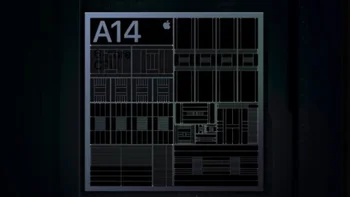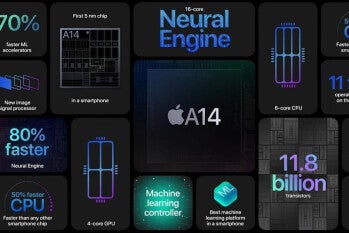Are sales of the 5G iPhone 12 Series slowing?

Is demand for the 5G enabled Apple iPhone 12 series dropping sharply? The world's largest independent foundry, TSMC, is the firm that takes Apple's chip designs and manufactures the integrated circuits used by the company's devices. Recently some news came out that led some to believe that sales of the iPhone 12 series were dropping sharply. Apple is expected to use 80% of TSMC's 5nm process node manufacturing capacity in the first quarter of 2021. That would be a drop from the 100% of TSMC's 5nm capacity that was used to manufacture the A14 SoC during the fourth quarter of 2020. While some analysts and investors said this decline pointed to a drop in production of iPhone 12 series handsets in response to softer sales, TF International's Ming-Chi Kuo has a different theory.
Are we seeing demand for the Apple iPhone 12 series shrink, or is it something else?
First, for those unfamiliar with Kuo, he has become one of the top analysts covering Apple thanks to his prescient calls on new iPhone features. For example, in February 2017 roughly seven months before the iPhone X was introduced, Kuo was talking about the "revolutionary" front-facing camera on the device (which we were still calling iPhone 8 at the time). Kuo, who was then working for KGI, was discussing the 3D sensing technology of what became known as Face ID. Seven months in advance, the analyst had already published the specs of the three iPhone models that Apple planned on releasing in September of that year.

Utilization rate of TSMC's 5nm manufacturing capacity has been shrinking
The latest note to clients from Kuo was obtained by AppleInsider and in it, the analyst said that seasonality is more likely to be the reason for the drop off in A14 Bionic production. He also stated that it would be "an overly optimistic erroneous expectation" to believe that Apple could continue to be responsible for 100% of TSMC's 5nm production capacity. Shares of Apple suppliers have been more volatile than usual thanks to the fears that demand for iPhone 12 models has been declining leading to a drop in orders from Apple for iPhone 12 supplies.
TF International says that even if the lower 5nm utilization rate leads to a decline in Q2 iPhone shipments to 45 million (down from 51 million), it would still result in year-over-year growth in shipments of 25%. A new survey of the iPhone supply-chain by TF International reveals that first quarter shipments from suppliers will be up 3% to 5% on an annual basis.
There are also a couple of other reasons that explain the drop in A14 Bionic production. One is the anticipated return to a normal production schedule for the iPhone next year. This year Apple has to use a staggered release schedule for the iPhone 12 series because the coronavirus forced suppliers to shut down early during the pandemic. That isn't expected to happen again next year as all four iPhone 13 models should share the same release date.
Another reason has to do with the stronger demand for the iPhone 12 Pro and iPhone 12 Pro Max. Apple has found obtaining camera supplies for the two models to be difficult. Demand is high, but camera supplies are tight. Sony is the lone supplier of these parts and its lead time is between 12 and 14 weeks which makes it harder for Apple to alleviate the parts shortage so soon. TF International says that "overall demand for iPhones is still better than that for Android smartphones, and the demand for iPhones is not yet weakening."
As for TSMC, the decline in 5nm utilization should not have a huge effect on the foundry. That's because as of October, only 8% of the company's wafer revenue is based on orders of 5nm components.










Things that are NOT allowed: